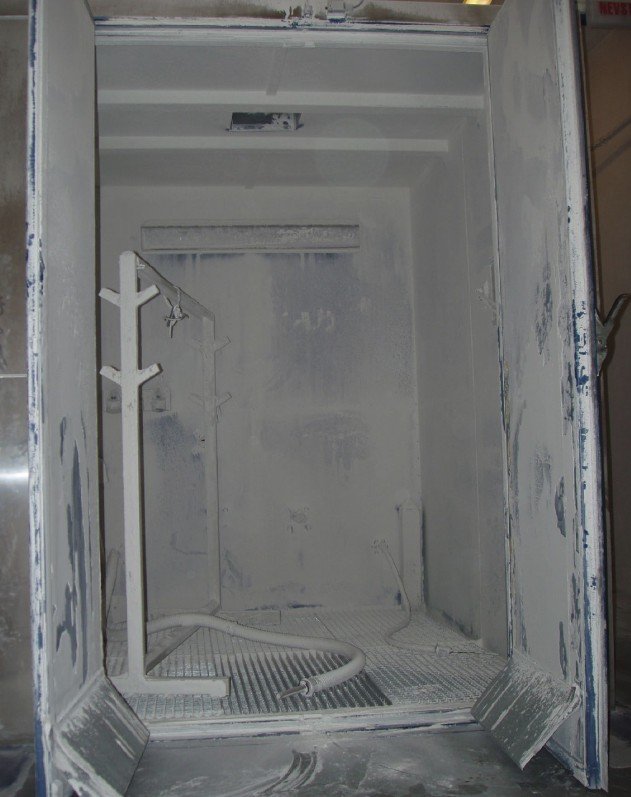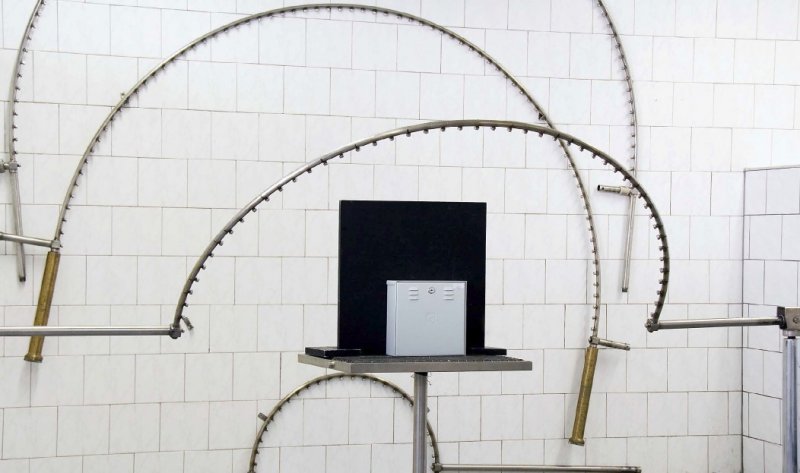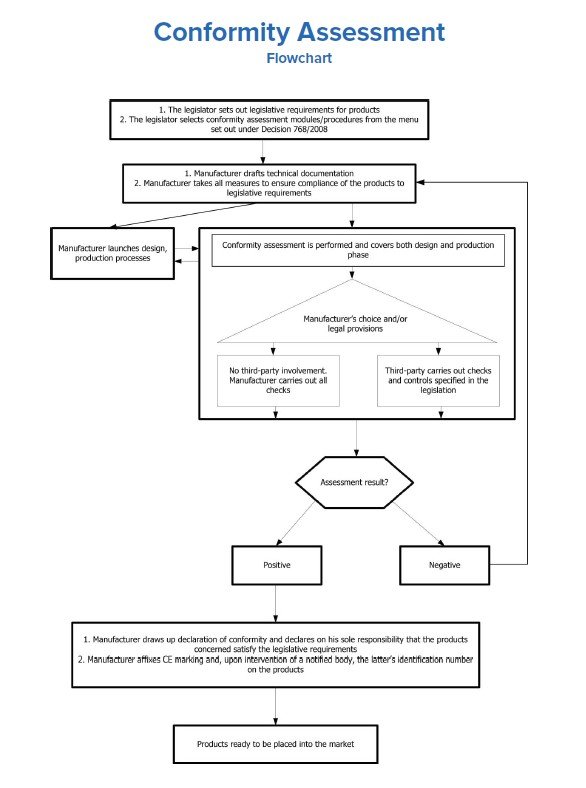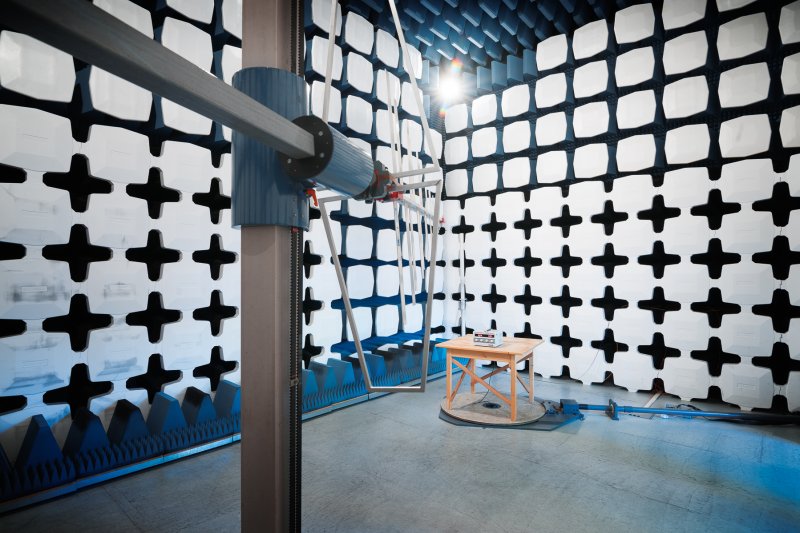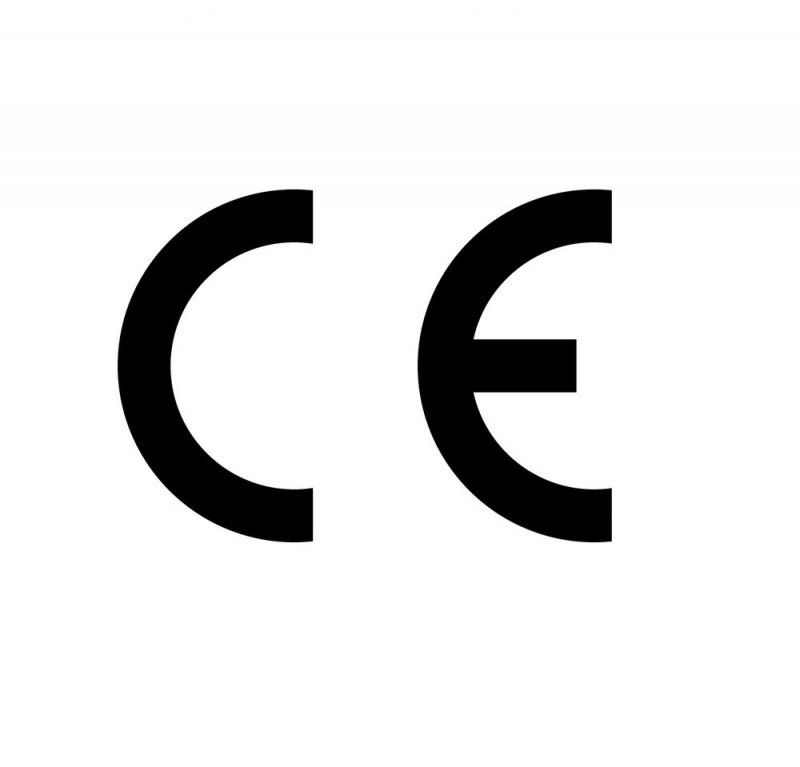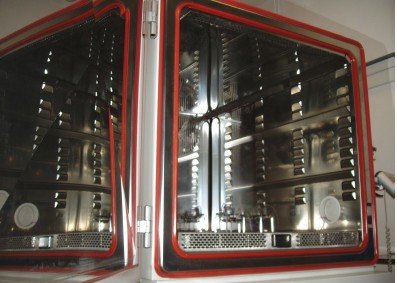Conformity assessment is the process of determining whether the actual characteristics of the product comply with the legislatively defined technical requirements for the product. Usually the relevant EUdirectives (and national laws in the country) further specify the conformity assessment procedure. In case it is not defined by the directive, the procedure is defined by manufacturers themselves. For example, we have manufactured the device in compliance with the standards and wehave the technical documentation for it. We decide if we want to confirm it with tests, if we do them by ourself or we reach out to authorized laboratory. The objective of conformity assessment is that the economic subject (manufacturer, authorized person, importer or distributor) issues the EU Declaration of Conformity and at the same time, place CE marking on a product. By doing so, they take over the whole responsibility. The procedure how they get to this declaration is called conformity assessment. It depends on the nature of product, what procedures are set for it by the legislation. For some devices, the tests with the authorized person (known as "notified body") can be optional but for the products used in potentially explosive atmospheres it is mandatory for the Declaration of Conformity. In each EU country, there is an institution that gives accreditation to these laboratories and they get various accreditations for various types of tests after meeting the defined requirements. Every laboratory issues a certificate that certifies the product only to what it is accredited for.
Certification is just one part of conformity assessment and it is not obligatory in all cases. The outcome is a certificate that declares the fulfillment of legislation (e.g. standards, directives, regulations for the automotive industry ECE, etc.). In case the legislation does not require it based on the type and character of the product, manufacturer does not have to pass certification. But certificate can be required by, for example company customers or in various tenders. Larger company customers often want to have; in addition to EU declaration of conformity; also a certain extra guarantee that the compliance of technical requirements has been assessed by independent laboratory, not only manufacturers themselves. In these cases a certificate from authorized laboratory serves very well. It is too short-sighted to think that job as a manufacturer is only to issue the EU declaration of conformity and think that by doing so he has fulfilled his duty. Control authorities can check the product at any time and in case of disagreement, they will require proof showing based on what the manufacturer came to conclusion that the product complies.
Manufacturer demonstrates the compliance in a statement via protocols about testing, which he can; if legislation allows it; perform himself. However, usually manufacturers do not have necessary capacity for such tests and therefore they can ask one of the laboratories for help.
How does certification look like in an authorized laboratory
Economic subject reaches out to the authorized laboratory and provides them with basic information about the product as well as requirements for the test. If the parties agree to cooperate, the manufacturer will supply technical documentation and diagrams, as well as the product itself and instructions for its use. Apart from this, part of the documentation is also so-called adequate risk assessment for the given product. Then they agree on the process, number of products which is followed by testing and assessment. In case of the product being compliant, the authorized laboratory issues protocol about the test and a certificate. In case the product is not compliant, they ask the manufacturer for addition and the process of assessment is on hold. It is important to realize that some of the tests can be even destructive and a testing product sample can be damaged or even destroyed. Likewise, safety of the sample or its other feature can be compromised during the tests and therefore it is recommended not to sell or use this product.How to choose the correct laboratory?
It is important to reach out to company that has the required standards in its portfolio, has qualified personnel and necessary equipment. An accreditation certificate can be of help but many laboratories offer also a wide range of non-accredited tests.How long does such certification take and what about price
Certification period depends on the desired length and difficulty of tests, the quality of the sample and the documentation supplied, and of course, also on laboratories’ availability. Usually it is few weeks. It happens that when a complex conformity assessment is needed, individual laboratories help each other with their capacities. It can happen that some test is so specific and demanding that it is performed only by a limited number of laboratories in Europe. Therefore, if there are more candidates, certification period can get really long.Same as with the certification period, price also depends on the extent of the tests, product complexity, or whether critical components (transformer, power supply, etc) that were previously certified as they are also developed by manufacturer, have been used for the manufacture. Now, for example, LED lights are very popular. There is a photo biological safety standard, where we talk about so-called Bluelight hazard risk for eye damage, which should also be examined especially for high power LEDs.
How long is the issued certificate valid?
The period of validity of the certificate is usually dependent on the laboratory decision, in some cases it is limited by legal regulations or certification schemes. Usually certificates are for 3 – 5 years. However, it is interesting that if, for example, the manufacture of the given product is regularly checked by certification body, it is possible to issue the certificate for an unspecified period.Changes to the product but also to components must be reported to the certification authority that issued the certificate, which will decide on the necessary steps; either on the need or extent of the testing. For some directives it applies that in case of the change of norm, the accredited body should inform the manufacturer about these changes and about necessary steps that need to be taken.
Products testing can help to reveal potential risks on time and eliminate threats to security of customers. Those who want to do fair business need to care about quality of their products. If you want to import, test the product first. Many imported products that declared certain features on paper did not reach required parameters during the testing.
Companies that invest into certification of their products benefit from it and have these costs returned via quality of their products and their market growth.
Do not miss these articles
Do you like our articles? Do not miss any of them! You do not have to worry about anything, we will arrange delivery to you.


